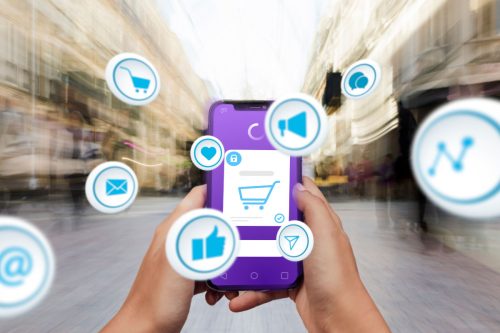
In recent years, TikTok has taken the world by storm, captivating users with its short-form videos and creative content. While primarily known as a social media platform for entertainment, TikTok has also emerged as a game changer in the retail industry. With its massive user base and innovative features, TikTok has revolutionized ecommerce, transforming the way brands connect with consumers. Let's delve into how TikTok ecommerce is disrupting the retail industry, examining the impact, opportunities, and challenges it presents.
The Rise of TikTok as a Global Phenomenon
TikTok, owned by the company ByteDance, has experienced explosive growth since its global launch in 2018. As of September 2021, TikTok has amassed over 1 billion active users worldwide, making it one of the most popular social media platforms. Its user base spans across different age groups, with a significant presence among younger demographics. The platform's addictive nature, algorithm-driven content, and engaging features have contributed to its rapid rise to prominence.

The Convergence of Social Media and Ecommerce
TikTok has seamlessly integrated social media and ecommerce, creating a unique and immersive shopping experience for its users. With its array of innovative features like in-app shopping links, product catalogs, and live shopping events, TikTok has transformed itself into a thriving digital marketplace. Brands can showcase their products directly to millions of potential customers, allowing for seamless discovery and instant purchasing. This integration has not only enhanced the shopping experience but has also propelled the platform to the forefront of retail innovation.
One of the key advantages of TikTok's ecommerce integration is the direct exposure it offers to brands, enabling them to showcase their products to millions of potential customers. By leveraging the platform's immense user base, brands can reach a wide audience, resulting in increased brand visibility and potential sales. With just a few taps, users can explore and discover products that align with their interests and preferences, making the shopping process seamless and enjoyable.

The Power of Influencer Marketing on TikTok
Influencer marketing has become a cornerstone of TikTok ecommerce. With their enormous fan bases and captivating content, influencers have the ability to drive significant sales for brands. This collaborative approach empowers businesses to harness the power of these influencers, effectively endorsing their products and services to a receptive audience. The nature of TikTok platform lies in its organic content that has the potential to go viral, granting brands unparalleled visibility and extending their reach far beyond expectations.
What sets TikTok apart is its capacity to produce organic, highly shareable content. With a perfect blend of creativity and relatability, a single video can skyrocket to viral fame, propelling brands to unprecedented levels of exposure. This viral potential translates into an exponential expansion of reach, making the brand and its offerings the center of attention. By riding this wave, businesses can leverage the organic nature of TikTok's platform, connecting with a massive audience and reaping the rewards of influencer-driven marketing.

Success Stories of TikTok Ecommerce
Numerous brands have capitalized on the opportunities presented by TikTok ecommerce, resulting in remarkable success stories. One such example is the makeup brand, e.l.f. Cosmetics, which launched a TikTok campaign called #eyeslipsface. This campaign quickly went viral, capturing the attention of users who eagerly created their own videos showcasing e.l.f. products, resulting in over 6 billion views. As a direct outcome of this viral success, e.l.f. Cosmetics experienced a substantial boost in sales and a significant rise in brand recognition.
e.l.f. Cosmetics is just one of many success stories in the world of TikTok ecommerce. Brands like Gymshark, Levi's, and Chipotle have also recognized the immense potential of the platform in connecting with and engaging their target audience. Through the creation of captivating content and the implementation of strategic marketing techniques, these brands have successfully forged connections with TikTok users, leading to notable increases in sales and heightened brand visibility.

Challenges and Considerations for Brands
TikTok has emerged as a powerful platform for ecommerce, offering brands vast opportunities to connect with their audience and drive sales. However, along with these prospects come a set of challenges that brands must carefully navigate. One of the primary considerations is preserving brand authenticity while delivering a seamless shopping experience within the TikTok app itself. Achieving this delicate balance can prove to be a complex task, requiring careful thought and planning.
Moreover, staying in sync with the ever-evolving trends and keeping up with TikTok's algorithmic changes poses an additional hurdle. To harness the platform's full potential, brands must adopt a proactive approach, constantly monitoring the pulse of TikTok's trends and algorithm updates and optimize their content to garner maximum reach and engagement. By aligning their strategies with TikTok's distinctive style, brands can effectively attract their target audience and distinguish themselves from the competition.

The Future of TikTok Ecommerce and Retail
The future of TikTok ecommerce is filled with promise and potential. This vibrant platform is constantly evolving, introducing innovative features that take the shopping experience to new heights. From shoppable ads to augmented reality try-on filters, TikTok is at the forefront of retail innovation. As brands and consumers continue to embrace this new era of social commerce, TikTok's impact on the retail industry is expected to grow exponentially, reshaping consumer behavior and redefining the retail landscape. By understanding the power of this platform and harnessing its unique features, brands can connect with their audience in meaningful ways, foster engagement, and drive sales.



